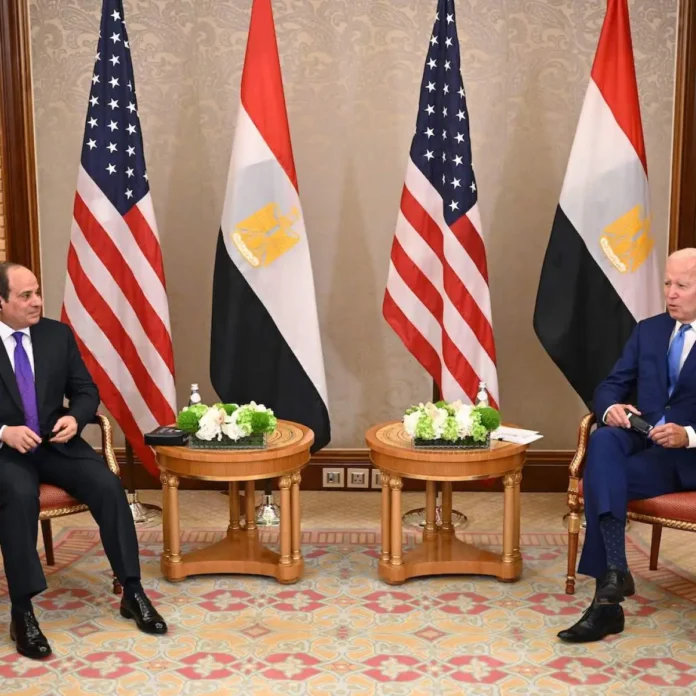Author: Emily Hawthorne (Middle East and North Africa analyst)
Affiliation: Stratfor
Organization/Publisher: Stratfor Worldview / A RANE Company
Date/Place: December 31, 2020/ Texas, USA
Type of Literature: Podcast
Keywords: U.S. – Egypt Relationship, Biden Administration, Security, Human Rights
Brief:
Emily Hawthorne, Middle East and North Africa analyst at Stratfor, discusses in this episode of Essential Geopolitics podcast the relationship between the US and Egypt under Biden’s administration and how it might change its direction—whether it will be security or human rights dominant. She focuses on three main points: the foundation of the relationship between the US and Egypt, the changes that might occur under Biden’s administration, and the forms of friction that could emerge between the two countries. The relationship between the US and Egypt goes back many years, since the US relies on Egypt as a strategic partner that helps in maintaining its interests in the region as well as the Muslim and Arab world. Moreover, Egypt is considered a major recipient of US aid, both foreign military aid and economic supporting aid. Hawthorne underlines two main reasons behind the close relationship between both countries. First, Egypt is geopolitically a critical partner to the US since it is an important country in the MENA region, due to its large population, and it enjoys deep ties with other Arab countries. Second, the longstanding peace treaty between Egypt and Israel, which has been a main reason for the US Congress having transferred money over the years to support Egypt’s enhancement of the agreement. Under the new presidential administration, this bilateral relationship most probably will follow the same direction but with more focus on human rights, which can be considered a significant change. This is based on Biden’s statement about “Trump’s favorite dictators.” However, this will be decided based on how the US will apply this human rights strategy. Although there could be more focus on human rights compared to previous administrations, Hawthorne believes that there are serious limits to exert many changes to the bilateral relationship since Egypt has continued to be a faithful partner in the region that the US seeks to maintain. She also highlights main frictions that might emerge in the relationship between the two countries. The primary point of fiction is the different views of national security priorities, which are stability and counterterrorism affairs that the Egyptian way to deal with could clash with the Western view. Another point of friction is Egypt’s shift from having the US as the main arms sales’ supplier towards France and Russia as the principal arms supplier. This shift towards Russian arms, particularly, and the planning to buy Russian fighter crafts, if it comes true, could trigger US sanctions. The last point of friction that encompasses different aspects is diversion of priorities. The relationship between Egypt and the US was founded based on joint regional goals that seem to be varying recently. This will probably cause a lack of closeness between the two countries in strategic issues, which they are focusing on in the region.
By: Yomna Süleyman, CIGA Research Assistant




